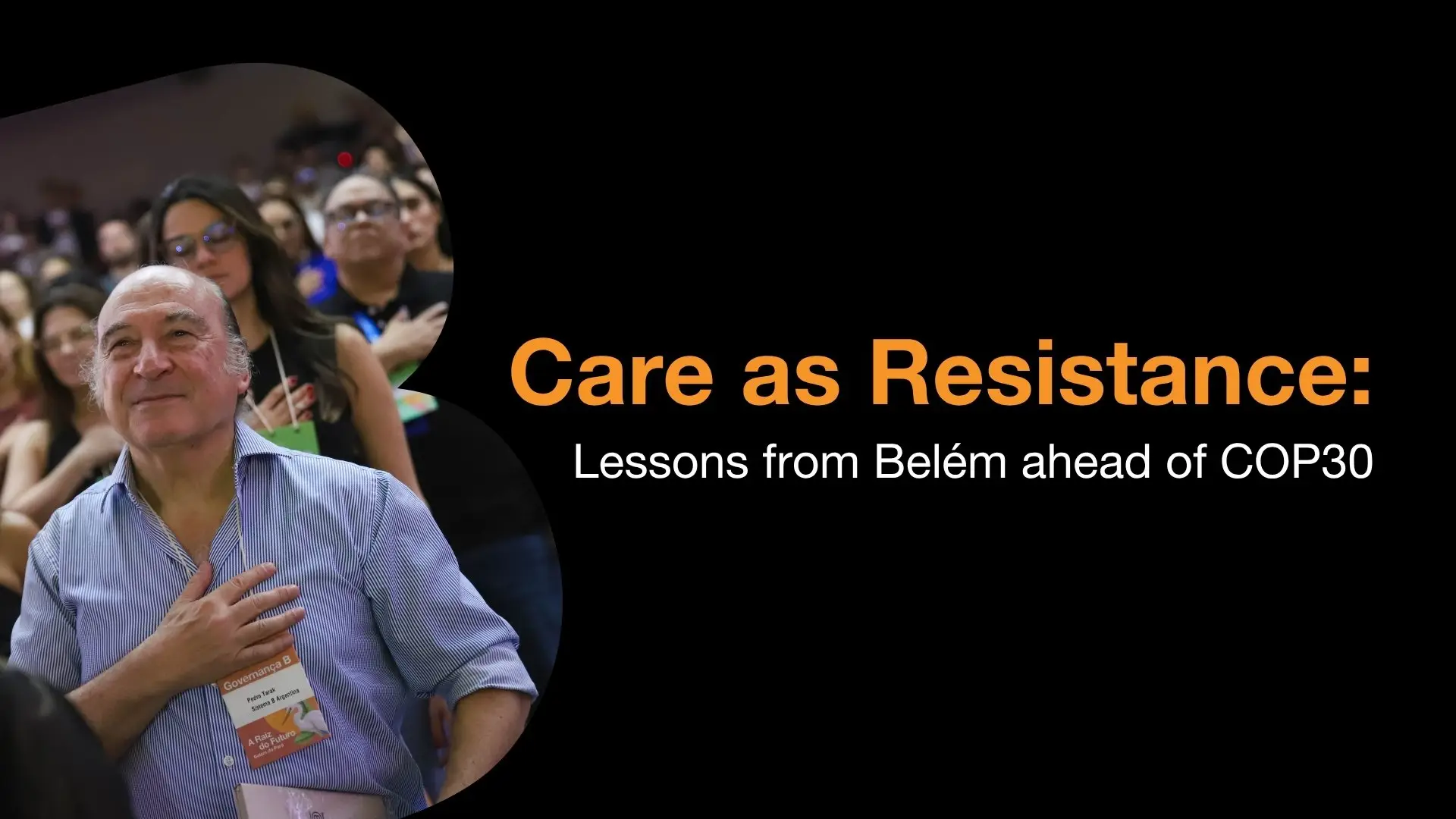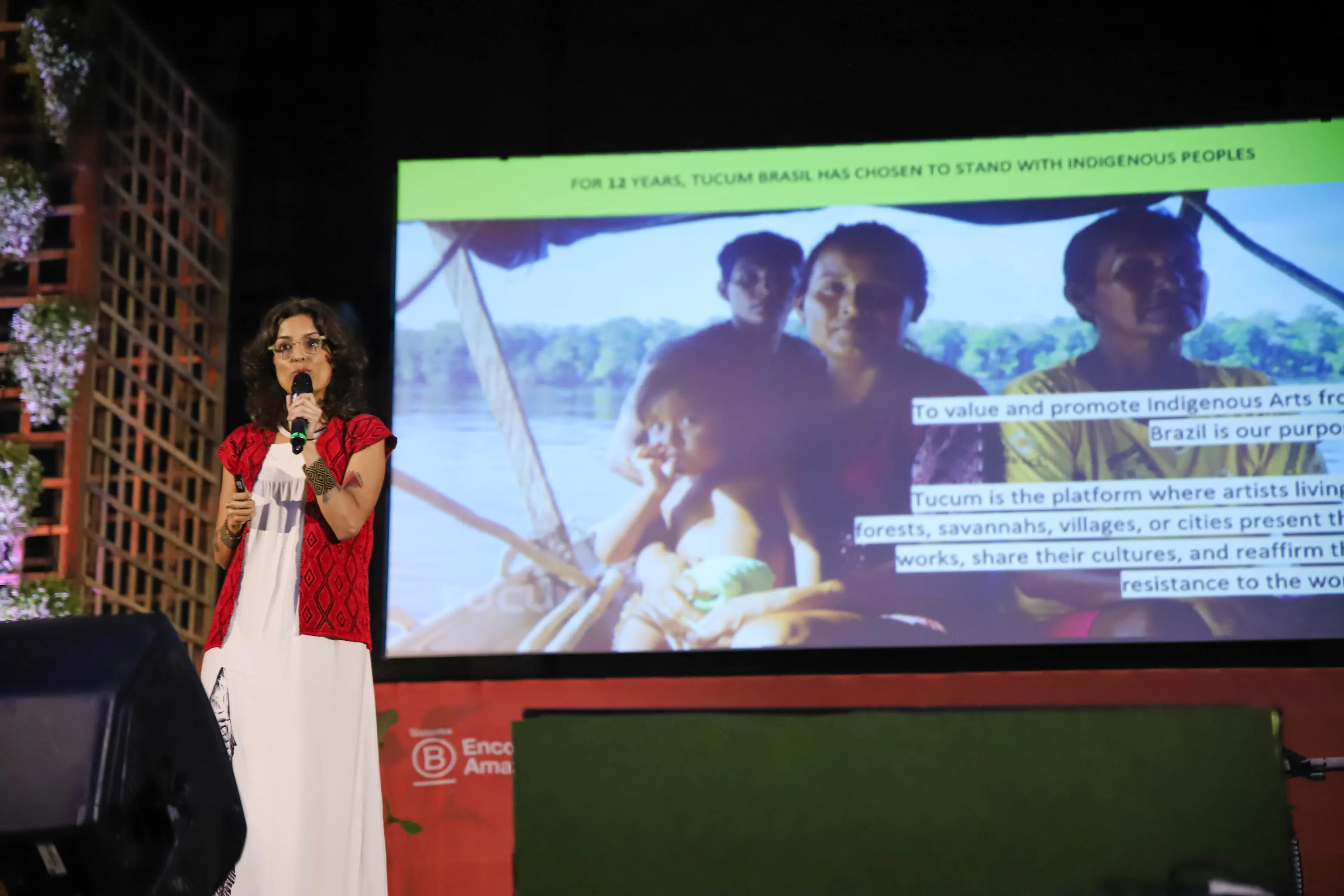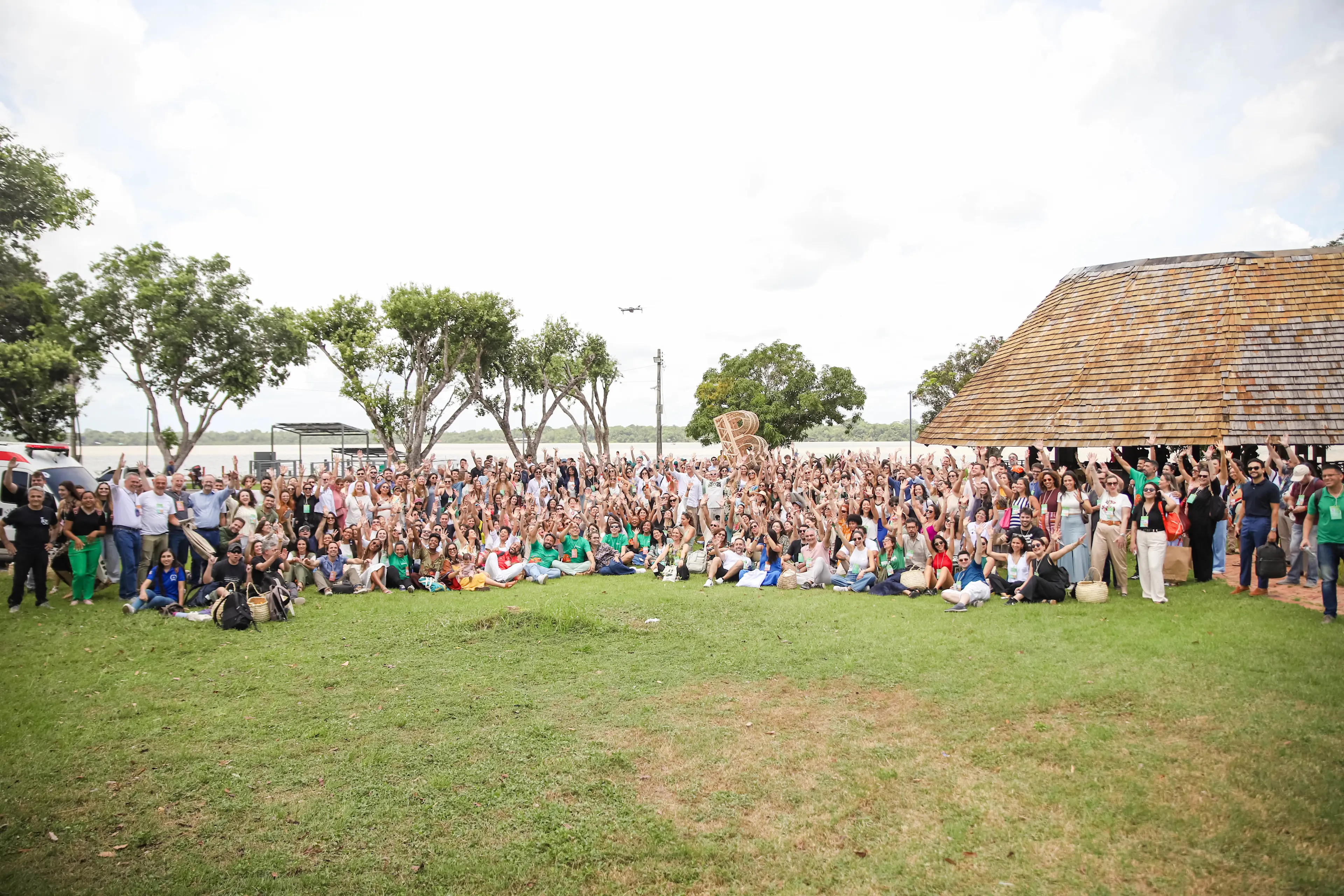Care as Resistance: Lessons from Belém ahead of COP30

Belém, Brazil, is a city where the stakes of the global economy are tangible. Once a hub of colonial sugar and Amazonian rubber, today is the capital of Pará, one of the nation’s poorest states. This vibrant metropolis of over a million people is also a frontline in the battle against the climate crisis. Against this backdrop, the B Corp community convened in Belém this September for its largest community gathering of Latin-American B Corps, Encuentro+B 2025.
Over three days of keynotes, workshops, and community activities, B Lab and B Corp leaders across Latin America and the world connected to celebrate and advance a new vision for the global economy. This vision champions an economy built on interdependence, where businesses are accountable to all stakeholders: their workers, their communities, the environment, and their customers, not just their shareholders.

In a world grappling with accelerating crises, the conversations at Encuentro+B felt particularly urgent. The failures of the old, extractive economic model are no longer theoretical; in a place like Belém, they are visible daily. At Encuentro+B, the theme that cut through every discussion was care—care as a deeply personal practice, care as a core business strategy, and care as a radical act of resistance.
“Care is perhaps our most fundamental human need. From the moment we’re born, we depend on it to survive," said B Lab co-founder Jay Coen Gilbert during a panel discussion about the roots of care, "a lack of care breeds fear, and when we are afraid, we’re vulnerable to those who seek power. And unfortunately, we live in a political economy whose currency is fear.”
This absence of care is, in many ways, the guiding principle of our current global economy. Its effects are everywhere: workers are being exploited whilst corporations profit from their labor, communities are exposed to harmful pollution without consent, companies are poisoning ecosystems without regard for the animal, plant, and human lives they sustain, and political leaders roll back climate commitments for short-term gain. Even the planning for COP30—arguably the year’s most critical climate summit—underscores this care deficit: Belém, set to host over 50,000 attendees, is buckling under logistical strain, resulting in a crisis of access. Exorbitant costs threaten to sideline the very voices—those of Global South nations and Indigenous communities—the summit purports to champion.
In this context, choosing to care is an act of resistance. And the B Corp movement is proof that leading with care is not just the right thing to do, but also the best way of doing business. Speaker after speaker took the stage to share some of the ways in which they are practicing care across their businesses and value chains: Argentinian B Corp Cook Master has created a program that gives incarcerated people a second change through education, supporting their reintegration into society; Brazilian beauty B Corp Natura is partnering with indigenous Amazonian communities to support sustainable economic activities that protect the rainforest, and Colombian B Corp Alqueria is empowering their dairy farmers with sustainable production models, boosting the socioeconomic development of their communities.

But how does a movement scale this practice from individual businesses to an entire system? “In the Corp movement,” Jay continued, “care is embedded in the standards. And [this community of businesses] taking that practice of care into the market is revolutionary.” The discussions at Encuentro+B repeatedly turned to the new B Lab Standards, which challenge this culture of carelessness by fundamentally redefining the role of business in society. With a mandatory minimum set of requirements across seven Impact Topics—from Climate Action and Environmental Stewardship & Circularity to Fair Work and Collective Action—they require that companies embrace a proactive duty of care for their entire sphere of influence.
They provide both a roadmap for internal company transformation and, through its community, a collective voice to advocate for systemic change. In our current contentious political and economic climate, it is easy to feel disempowered. B Lab Standards are a way for businesses to strengthen their resolve, demonstrate their commitment, and prove that a better way is not only possible— it’s already being built.

The lessons from Belém were clear. The world will not be saved by grand, careless gestures. It will be transformed by the deliberate, human-scale, and revolutionary act of caring, scaled through businesses brave enough to prove it's possible.